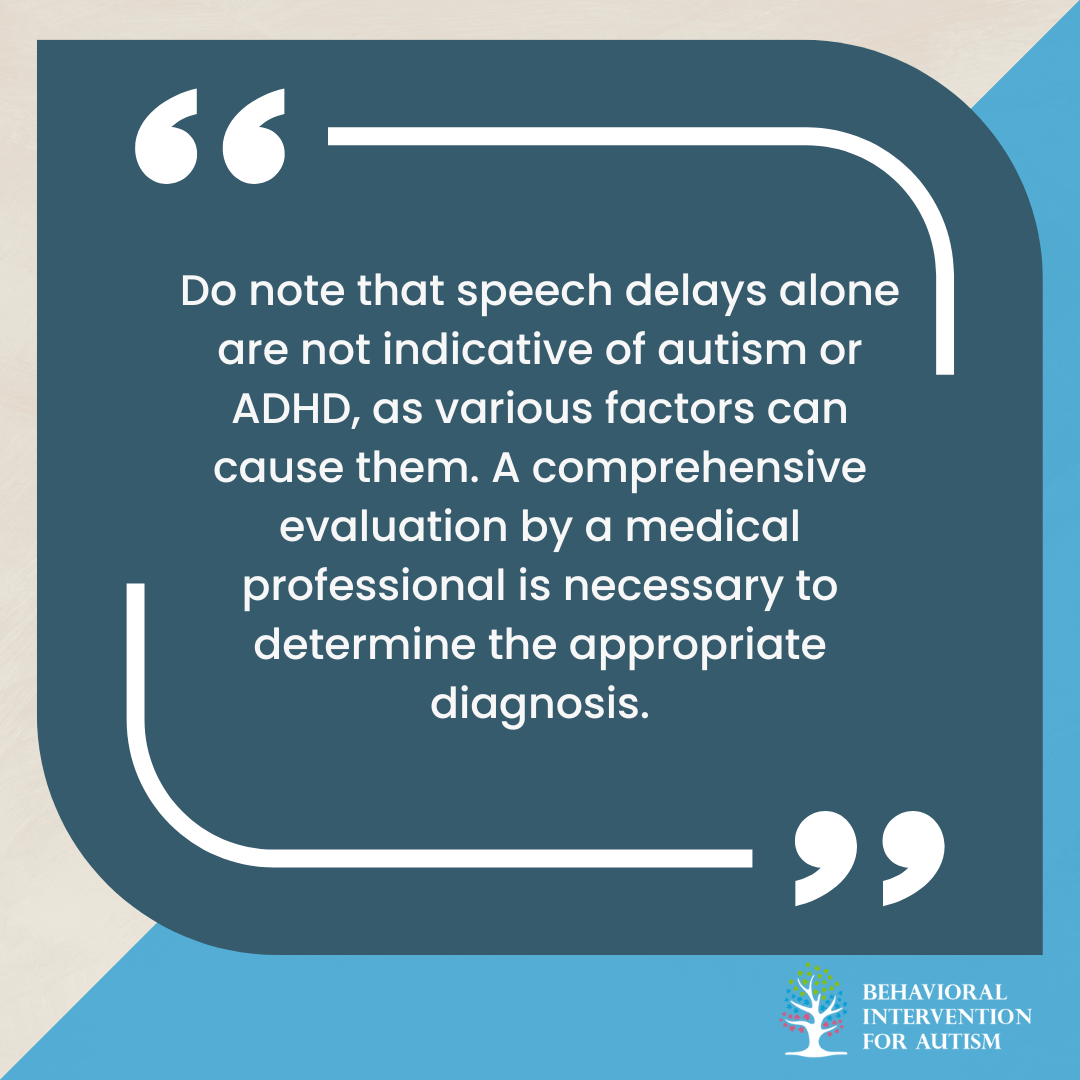
Table of Contents
Autism and ADHD share some common symptoms which can make it challenging to differentiate between the two. Both conditions can involve difficulties with attention, impulsivity, and hyperactivity. Additionally, individuals with both autism and ADHD may struggle with social interactions, communication, and executive functioning skills.
However, there are also distinct differences in the symptoms of autism and ADHD. For example, individuals with autism often display repetitive behaviors, restricted interests, and sensory sensitivities, which are not typically seen in ADHD.
On the other hand, individuals with ADHD may exhibit symptoms such as forgetfulness, difficulty organizing tasks, and problems with time management, which are less commonly associated with autism.
This begs the question: “Is ADHD a type of autism?”. Let’s find out.
Comorbidity Rates
According to research, autism and ADHD can coexist in some individuals. Prior to 2013, the diagnostic criteria did not allow for a simultaneous diagnosis of ADHD and autism. However, medical professionals now recognize that many children meet the criteria for both conditions.
According to the Centers for Disease Control and Prevention (CDC), approximately 14% of children with ADHD in the U.S. also have autism spectrum disorder. A 2010 study revealed that 83% of more than 2,500 autistic children in the U.S. had at least one other developmental disorder, while 10% had at least one psychiatric disorder.
Studies have also reported varying rates of comorbidity between autism and ADHD. Gnanavel et al. (2019) found that between 60-100% of children with ADHD have some form of comorbidity, one of which is autism.
Additionally, studies from the United States suggest that about 42% of children diagnosed with autism disorder also have comorbid ADHD.
The Diagnostic and Statistical Manual of Mental Disorders (DSM-5) now allows for a dual diagnosis of ADHD and autism, provided that the diagnostic criteria for both conditions are met. This change reflects the recognition that these conditions can coexist and that individuals may present with a combination of symptoms from both autism and ADHD.
Causes of Autism and ADHD
Understanding the causes of autism and ADHD is a complex task that involves exploring various factors which are as follows:
Genetic Factors
Research suggests that both autism and ADHD have a significant genetic component. Individuals with autism are more likely to have a close relative with ADHD or another developmental disorder. This genetic relationship indicates that certain genes may play a role in the development of these conditions.
However, it’s important to note that not all individuals with a genetic predisposition will develop autism or ADHD.
Studies have shown that there are specific genes associated with both autism and ADHD. These genes are involved in various neurological processes and brain development.
That said, the exact mechanisms through which these genes contribute to the conditions are still being explored.
Environmental Influences
Environmental factors may also play a role in the development of autism and ADHD, alongside genetic factors. Prenatal factors, such as exposure to specific toxins or infections in the mother during pregnancy, can be considered environmental issues. Postnatal variables could also be important, such as newborn exposure to environmental contaminants or specific parenting techniques.
It’s important to note that environmental influences do not cause autism or ADHD on their own. Rather, they may interact with genetic factors, influencing the expression of certain genes and contributing to the development of these conditions.
Research is ongoing to understand the specific environmental factors that may contribute to autism and ADHD. By identifying these factors, it may be possible to develop strategies for prevention or intervention.
Diagnosis of Autism and ADHD
Diagnosing autism and ADHD requires careful examination of symptoms and adherence to specific criteria. In recent years, there has been a growing recognition that individuals can have both conditions, leading to a dual diagnosis.
Let’s explore the diagnostic criteria outlined in the DSM-5 and the concept of dual diagnosis.
DSM-5 Criteria
The Diagnostic and Statistical Manual of Mental Disorders, Fifth Edition (DSM-5), provides standardized criteria for diagnosing neurodevelopmental disorders, including autism and ADHD.
For a diagnosis of autism spectrum disorder (ASD), individuals must exhibit persistent deficits in social communication and interaction, as well as restricted and repetitive patterns of behavior, interests, or activities.
On the other hand, recurring patterns of hyperactivity-impulsivity or inattention that impede functioning or development are necessary for the diagnosis of ADHD. These symptoms should start before the age of twelve and be noticeable in a variety of contexts.
Dual Diagnosis
In the past, the DSM-IV did not allow for a simultaneous diagnosis of ADHD and autism. However, the DSM-5 has recognized that these conditions can coexist, and a dual diagnosis is now possible. This change in the diagnostic criteria acknowledges that many individuals meet the criteria for both conditions.
According to studies, the prevalence of ADHD in individuals with autism spectrum disorder varies, with estimates ranging from 30% to 50%. Similarly, research suggests that approximately 14% of children with ADHD also have autism spectrum disorder.
The recognition of a dual diagnosis is crucial as it helps professionals and caregivers develop a comprehensive understanding of an individual’s needs. It allows for tailored interventions and treatments that address the unique challenges posed by both conditions.
Key Differences Between Autism and ADHD
While autism spectrum disorder (ASD) and attention-deficit/hyperactivity disorder (ADHD) share some similarities, they are distinct conditions with their own unique characteristics.
Let’s look at the key differences between them:
Speech Development
Speech delays and idiosyncrasies are part of the ASD diagnosis and not typically associated with ADHD. Communication difficulties, such as delayed speech or using repetitive language, are common in individuals with autism. These challenges may manifest as echolalia (repeating words or phrases) or difficulties with expressive language.
On the other hand, individuals with ADHD may experience speech delays, but these delays are not as inherent to the ADHD diagnosis as they are to ASD.
Social Challenges
Social challenges are another area where autism and ADHD differ.
Individuals with autism often face significant difficulties with social interaction. They may struggle with understanding social cues, maintaining eye contact, and engaging in reciprocal conversation. The social challenges associated with autism can vary in severity, ranging from mild difficulties to more profound impairments.
In contrast, individuals with ADHD may also experience social difficulties, but these challenges are primarily related to impulsivity and inattention. They may struggle with listening attentively, taking turns in conversations, or following social norms.
However, the social challenges associated with ADHD are generally less pervasive and severe compared to those experienced by individuals with autism.
While there are differences between autism and ADHD in terms of speech development and social challenges, there can also be overlap and comorbidity between the two conditions.
Some people might be given a dual diagnosis of ADHD and ASD. In fact, according to CDC estimates, 14% of American children diagnosed with ADHD also have autism spectrum disorder.
Given the complexity and variability of these conditions, it is crucial to consult with healthcare professionals experienced in diagnosing and treating autism and ADHD. They can provide a comprehensive evaluation and develop a tailored plan to address the specific needs of individuals with these conditions.
Sources:
https://www.understood.org/en/articles/ive-heard-that-autism-and-adhd-are-related-is-that-true
https://www.medicalnewstoday.com/articles/325618
https://www.healthline.com/health/adhd/autism-and-adhd
https://www.verywellhealth.com/autism-vs-adhd-5213000
https://www.autismparentingmagazine.com/is-adhd-form-of-autism
- 9 Common Obsessions of Children With Autism You Should Know - February 25, 2025
- What is Neurodiversity? A Guide to Embracing Differences - February 25, 2025
- Understanding Hyperfocus in Autism: What It Means and Why It Happens - February 25, 2025




